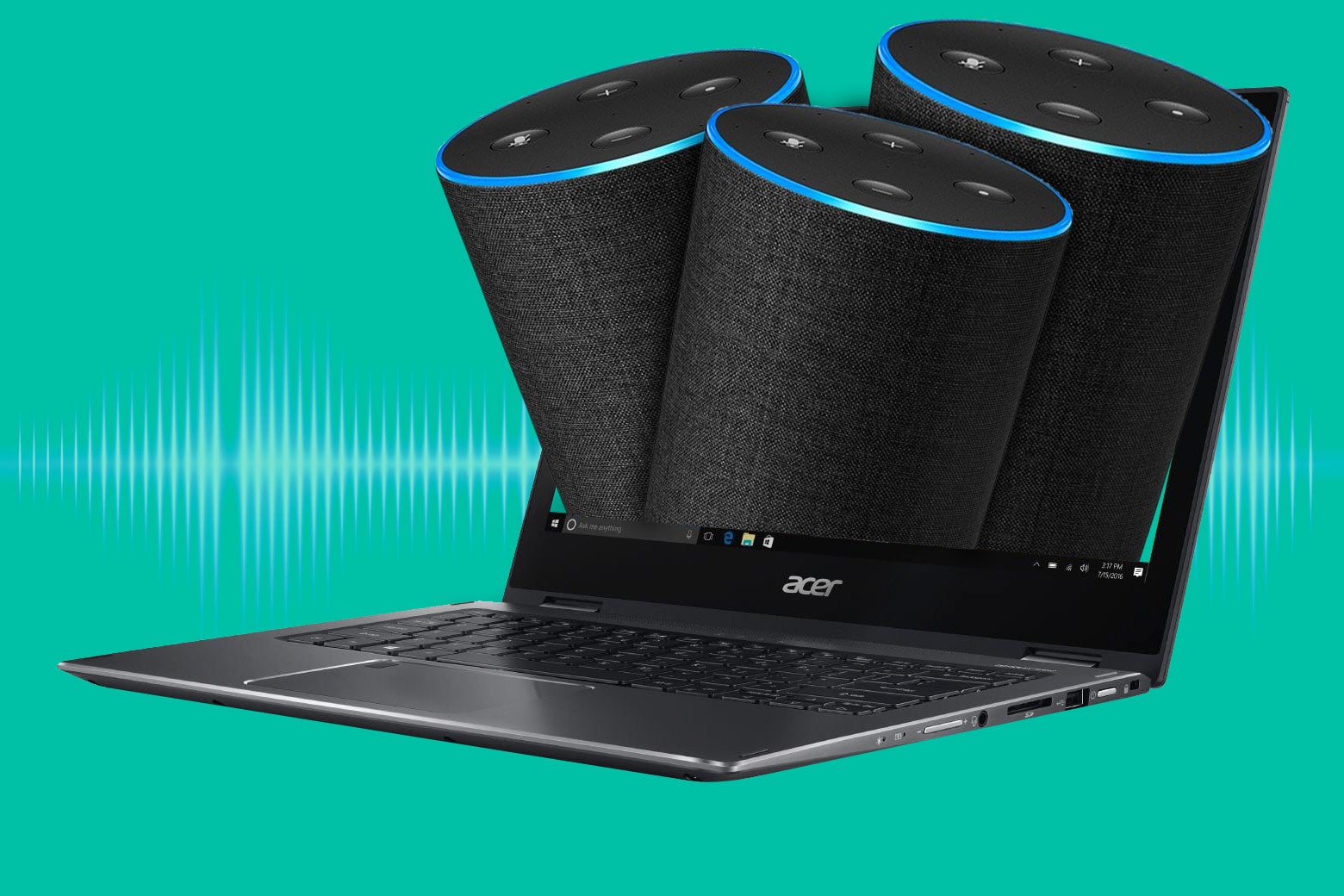Most laptops come with their own virtual assistants. On the Mac, it’s Siri; on Windows, it’s Cortana; on the Chrome operating system—or at least Google’s Pixelbook—it’s Google Assistant. Amazon’s Alexa has been the odd assistant out. Without a desktop OS of its own, it’s been absent from this arena even as it’s emerged as the most helpful virtual assistant and the Amazon Echo line dominated smart-speaker sales. But in a curious, although not entirely unexpected move, Alexa is now available on some Windows 10 PCs. Acer’s new Spin 3 and Spin 5 lines both come with Alexa pre-installed, while its gaming laptop and all-in-one desktop setups will arrive with Alexa integration in the coming weeks. Older Acer devices will also gain Alexa compatibility through a firmware update. And earlier in May, HP also came out with an all-in-one PC with Alexa built in.
For Amazon, the move to PCs makes sense: It closes the loop on Alexa availability in your daily life. It also acts as a testing ground for companies considering Alexa for Business, Amazon’s enterprise-focused Alexa variant. If employees or managers experience the utility of Alexa on their personal laptops, it could trickle more formally into the office environment.
Hardware makers have been including Alexa in a growing variety of third-party products. It’s being built into headphones, wearables, cars, and even home security systems. However unusual some of these devices may be, a running theme is that before their integration with Alexa, they were assistantless. That’s not the case with Alexa on the PC.
Despite a partnership announced earlier this year that lets Cortana and Alexa talk to one another, the benefits on Microsoft’s end are far less clear. Alexa is encroaching on Cortana’s turf, and that could in turn damage the popularity and staying power of Microsoft’s software. Alexa’s third-party integrations give it some advantages over a default assistant; in addition to offering easier ways to access calendar and to-do list information, programs, and files, Alexa can also work with apps like Slack or Google Docs. Still, Alexa on a PC fails to add value to Alexa on a smart speaker—and unlike a smart speaker, a laptop’s mic is only designed to pick up audio from nearby.
But it’s an interesting software update and selling point for these computers; perhaps it will entice purchases from those already loving the Amazon Echo ecosystem and looking to make access to their assistant more seamless and ubiquitous. Alexa could perhaps prove a valuable pawn in Windows’ continued battle with macOS for desktop market share. Some users really don’t like Siri. Alexa being built into Windows PCs could lure smart-assistant fans away from Apple.
It’s worth considering how Alexa has been integrated into smartphones. While you can access Alexa on the Amazon Shopping or Alexa apps on your phone—an addition to the built-in availability of Siri or Google Assistant—you can also make Alexa your default assistant on Android handsets. By heading into your phone’s settings, you can set your Android device to automatically summon Alexa instead of Google Assistant when you tap and hold the home button. Unlike the debut of these new Windows 10 PCs, however, this is an option that Google rolled out quietly—it hasn’t been the major selling point of an Android handset (at least not yet).
Attitudes about voice-based assistants have changed since companies started adding them to desktop experiences around 2016. Back then, the idea of barking questions or commands at your computer was exceedingly awkward. With the rise of smart assistants in our homes, the thought isn’t quite so ludicrous (even if open-office dwellers should still exercise good judgment). Touting Alexa over Cortana feels cannibalistic to the Windows experience, not like a considerate option for virtual-assistant diversity. But for Amazon, it’s a logical step for its virtual assistant. Whether Alexa integration proves to be a compelling selling point for PC makers, it’s clear that with its brand power and broad user base, hardware makers—and perhaps even Microsoft itself—hope it will be.
